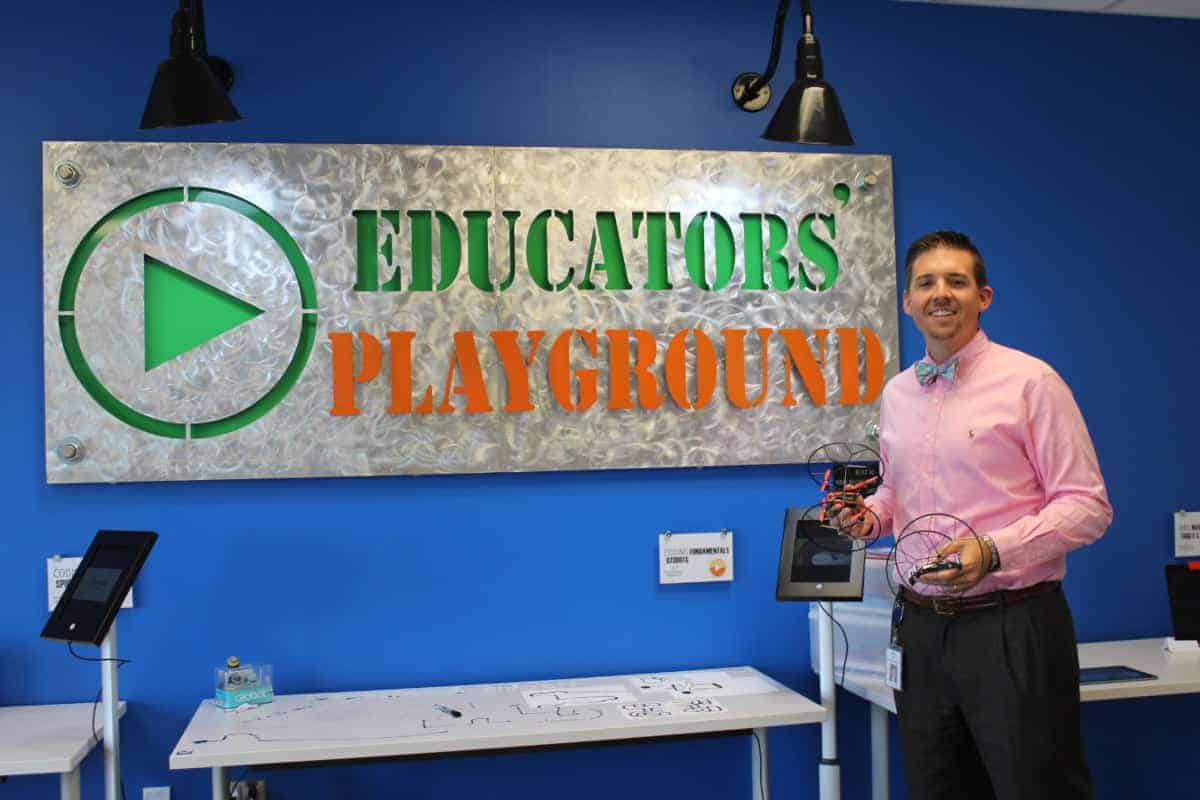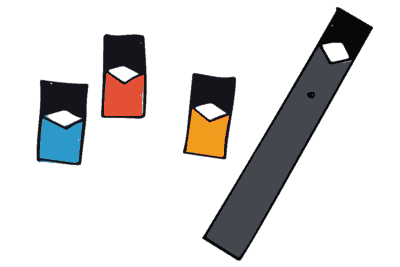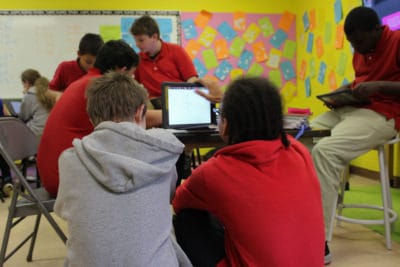For the past four years, Rowan-Salisbury Schools has undergone a digital conversion with a focus on bridging learning and technology. As a 1:1 district, all students have laptops or iPads, and with teacher-centered partnerships like the Digital Scholars Initiative, educators are very much part of the digital conversion process, too.
Cue the Educators’ Playground.
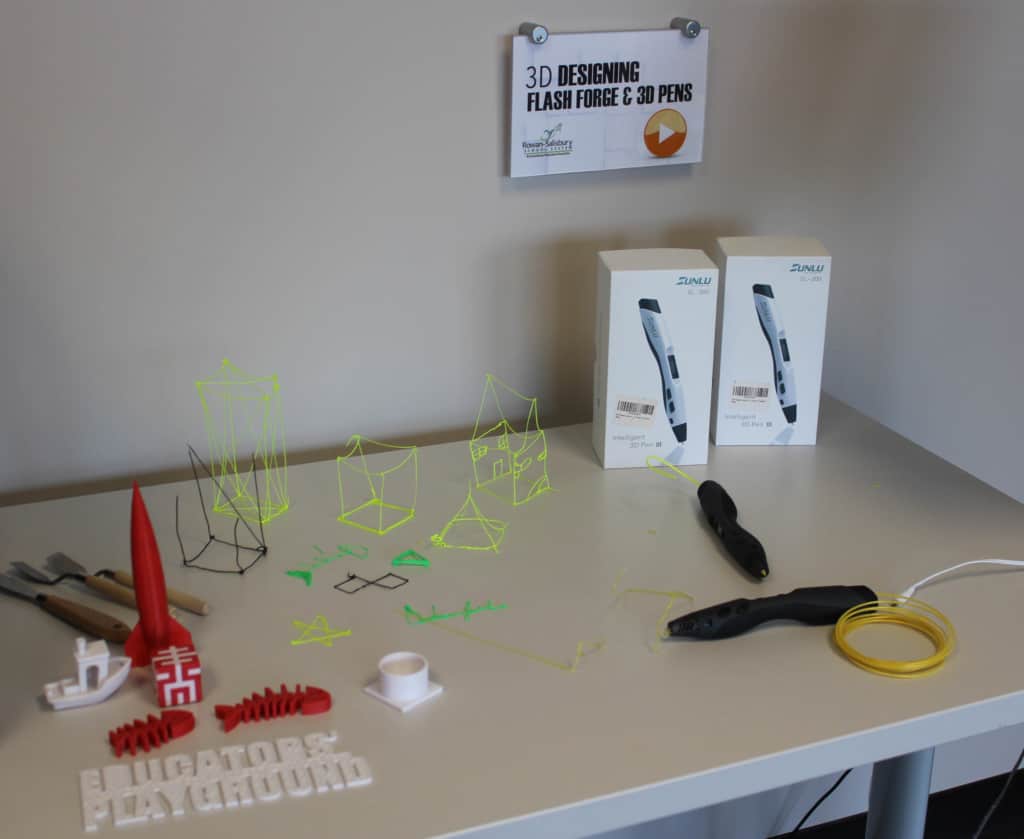
“We allow companies to place their products in this playground, and our teachers go in and essentially play and learn about these new technologies,” said Andrew Smith, Chief Strategy Officer of Rowan-Salisbury Schools. “You can imagine a space where we ask adults to act kind of like kids, and we ask them to vet potential products.”
Considered part technology procurement and part professional development, the Educators’ Playground is in its first year. The purpose of the playground is to allow ed-tech companies to partner with those closest to students — teachers — in the design of their products, while at the same time letting teachers test new technology before buying it.
“Teachers, when they have input on product design, there’s an amazing power to that,” said Smith.
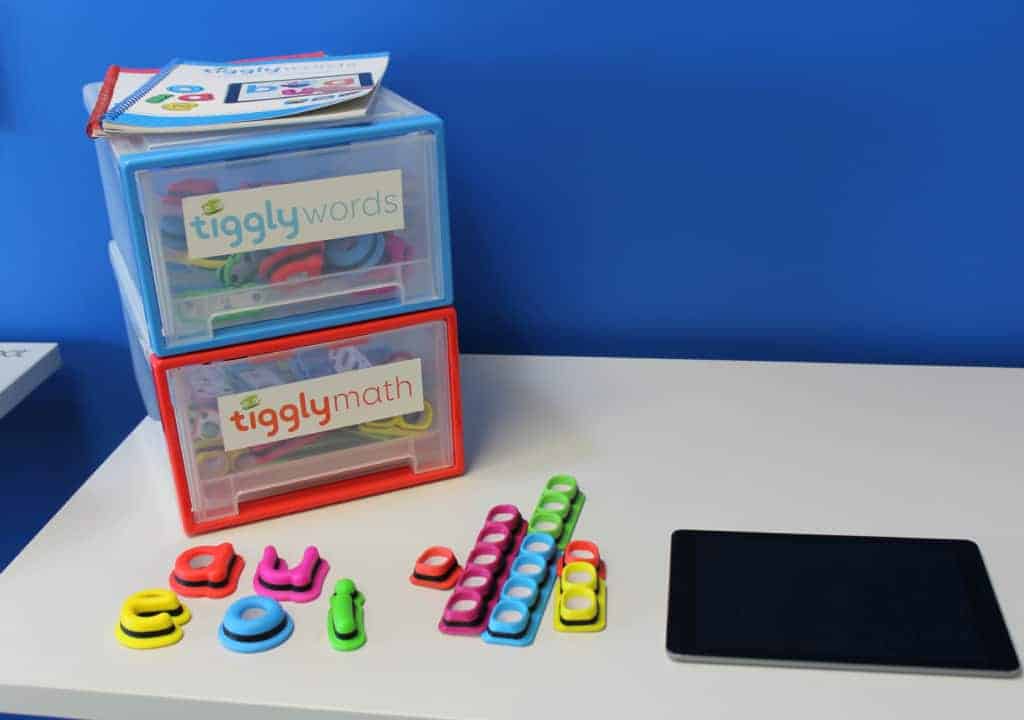
In turn, teachers also learn about new and upcoming technologies available for use in their classrooms and have a space for hands-on tech testing.
“You will not change learning for a child if you don’t change the learning for a teacher” said Myra Best, Executive Director of DigiLearn, which partners with the Educators’ Playground in Rowan County.
In 2016, DigiLearn launched the Digital Scholars Initiative to cultivate teachers as leaders and models for technology use in classrooms. Digital Scholars teachers receive professional development, extended employment, and time outside the classroom, including at the Educators’ Playground, to develop leadership and entrepreneurial skills necessary to turn their classrooms into digital learning labs.
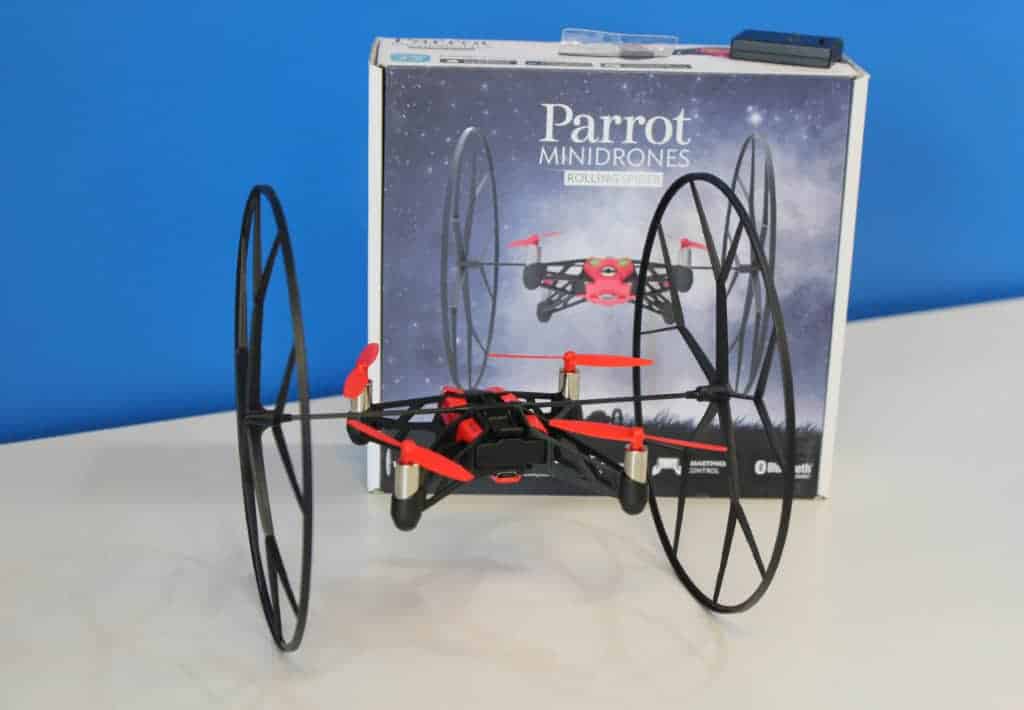
“The technology gives them that set of tools that they need [to] really help students take ownership of their own learning,” said Best.
In the Playground, teachers have access to featured tech like 3D pens, Sphero robots, drones, games for iPads, and virtual reality goggles.
“This is the real deal,” said Smith of the HTC Vive virtual reality headset. “It’s better really if you jump in. I promise.”
